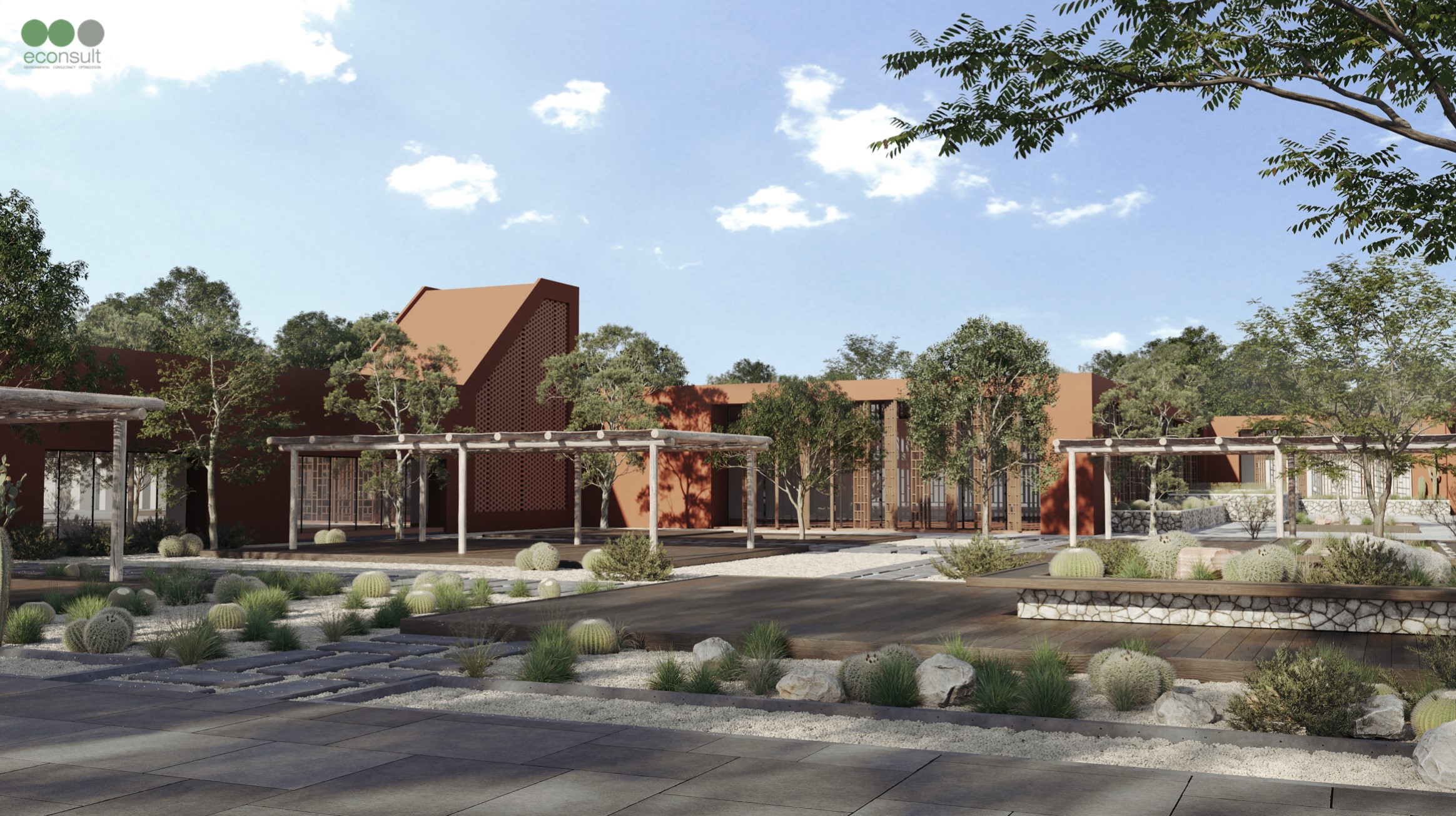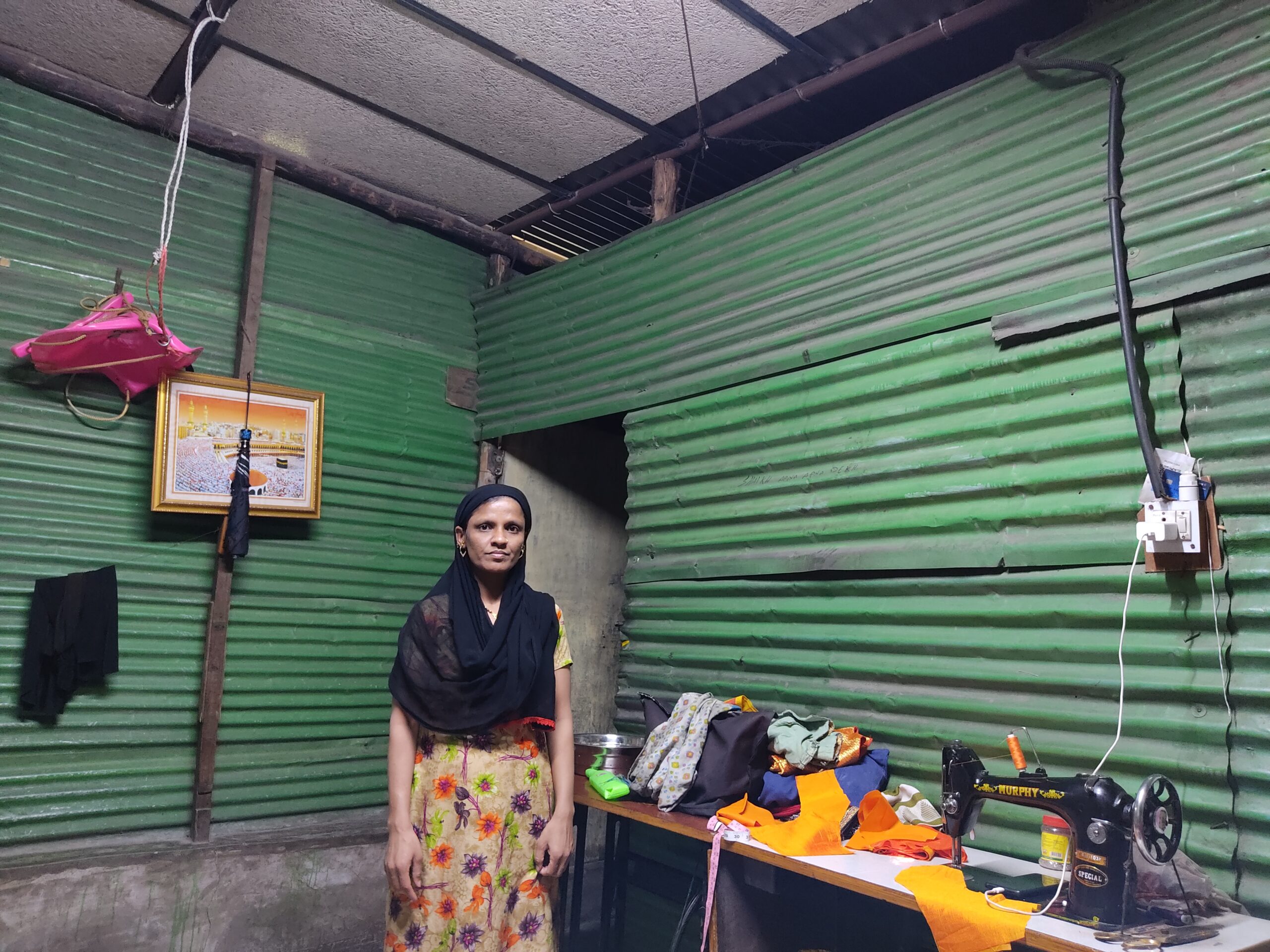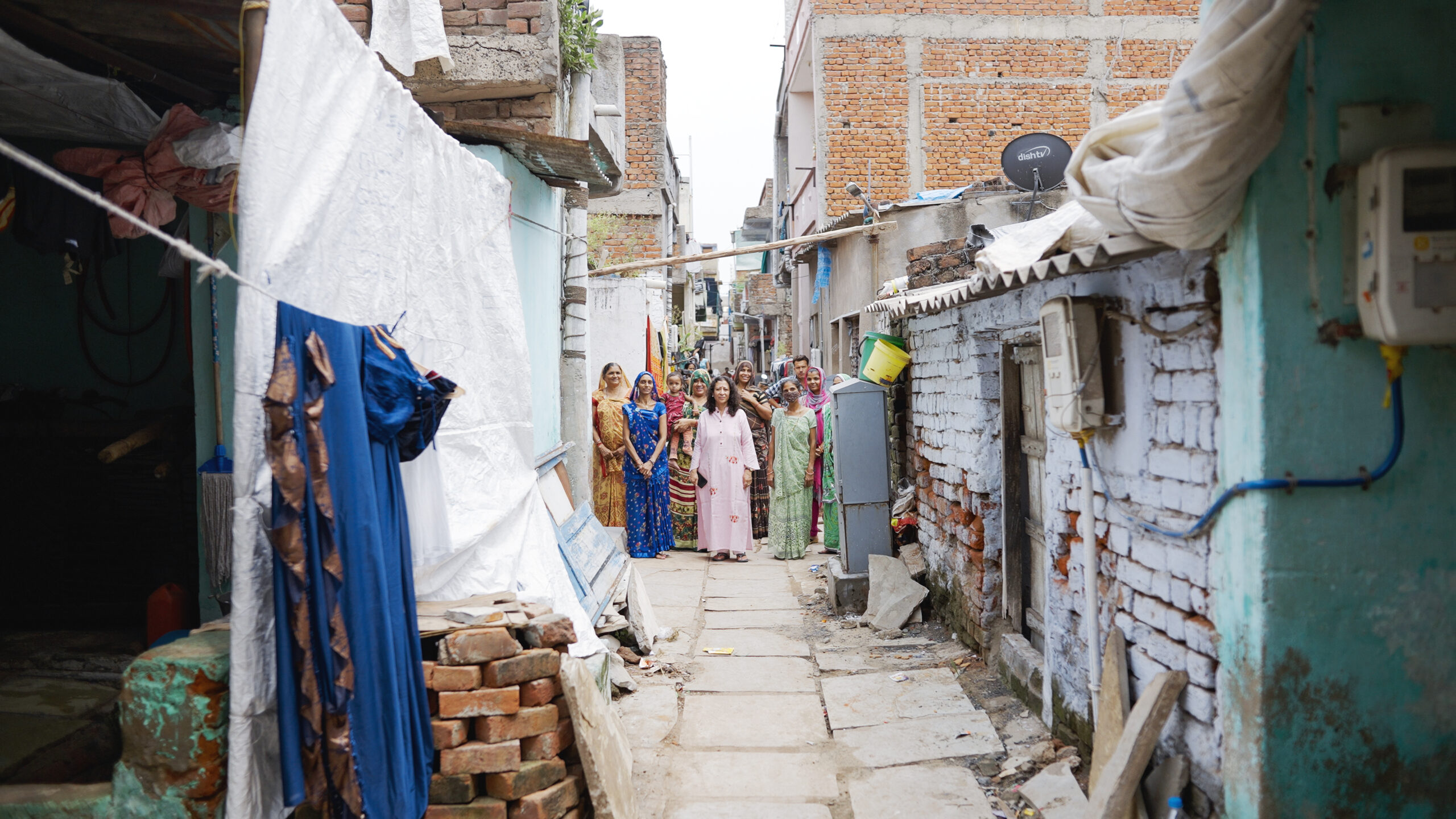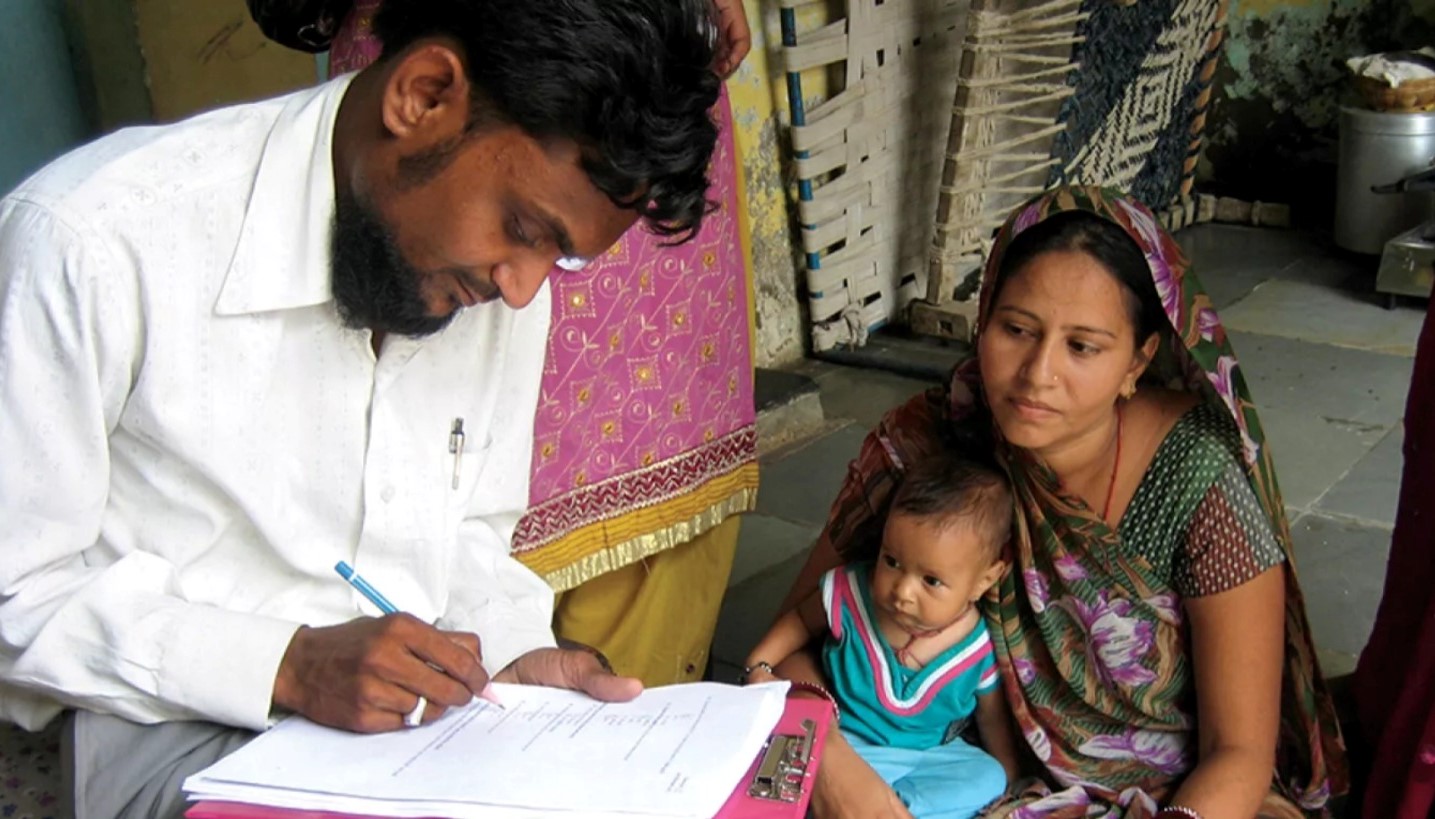As scorching temperatures sweep across the world, communities are finding themselves in the grip of an unprecedented heatwave, shattering records and triggering widespread concerns about public health, environmental impacts, and strain on essential services.
The costs of a rapidly changing climate, particularly rising temperatures, fall hardest on poor and marginalised people. The heat challenges they face include dangerously hot buildings and those with less money generally face higher indoor temperatures.
Traditional air conditioning using fossil fuels cannot be the go-to in a decarbonising world, but for those on low incomes, they an option anyway. And without access to cooling measures heat stress increases the risk of death, physical and mental illness.
Climate solutions charity Ashden have coordinated a Fair Cooling coalition of organisations working on passive cooling solutions and also spotlight organisations working on low carbon solutions in the global South through its annual Ashden Awards – showcasing clean energy and low carbon solutions.
Collaborators with Ashden from Egypt and India provide examples of how to keep buildings cool using highly effective, affordable, ‘passive design’ methods such as shading, ventilation, heat-reflecting materials, and incorporating cooling water systems and planting.
Cooling innovation in Egypt and India
ECOnsult Architects, Egypt – green and cool architecture in desert conditions

Photo: ECOnsult Architects designed Linah Farms in Egypt Western Desert – accommodation for tea farm workers which provided cool and healthy living conditions – a vast improvement on the often unbearably hot living spaces many workers go back to at night. Credit: ECOnsult
Green Architects ECOnsult in Egypt design affordable and accessible green buildings to improve comfort and livelihoods and have the largest portfolio of green certified buildings with the first carbon neutral project in Egypt.
Founder and CEO, architect Sarah El-Battouty, is one of Egypt’s leading green entrepreneurs and ECOnsult’s success has put her on the global stage – she is a UNFCCC climate champion ambassador, senior advisor on Climate & Sustainability to the Egyptian Presidency, designed the COP27 Pavilion in Egypt and is now an advisor for COP28.
“ECOnsult has shown what’s possible in terms of creating buildings which keep people cool and healthy. For instance, we designed a sustainable housing complex for tea farm workers in Egypt’s Western Desert. We drew on traditional knowledge and used locally available materials like porous limestone and sandstone that allow air to flow through the walls and provide shade to protect people at high risk of heat stress.
“Workers’ accommodation is generally very poor quality and heat exhaustion is very common. These homes transformed their lives, and safeguard both workers and employers by decreasing heat-related health issues and deaths.”
El-Battouty points out that as the housing sector is so vast, many stakeholders need engagement – something that can only be done by governments and that the costs of inaction are huge.
“Governments have a key role in steering public interest and should give a very clear roadmap of the priorities they want to invest in. Climate change will only become integrated in development if it is not treated as a secondary ‘extra pointer’ rather an existing problem.”
ECONsult were part of the Fair Cooling coalition.
CBalance Solutions, India – training students in future-proofing buildings for heat

Photo: Inside a home in Pune, India, where ‘wood-wool panels’ have been installed under the roof which cool down the room. The Wood Wool Panel is an environment-friendly, recyclable material made from wood, wool, cement and water. Credit: CBalance Solutions
Indian social enterprise CBalance Solutions advocate for cooling solutions for India’s vulnerable communities. They implement pilot projects with passive-design roof retrofits in informal settlements and also update curricula in architecture and engineering schools. By 2026, around 50 architecture colleges, 10,000 students, and more than 1,000 professors annually are expected to engage in devising passive design solutions for urban poverty.
The experiences of communities CBalance work with highlight the relationship between wealth and cooling, and the urgent need for what’s been termed ‘cooling justice’ or ‘fair cooling’. People in poor communities who are enduring oppressive, unrelenting heat are often living alongside large high rise buildings with huge AC systems. CBalance insist that fair cooling is about tackling power structures as well as introducing new technology.
By October 2025, CBalance aim to implement passive design solutions in 5-10% of informal housing in four major Indian cities, through government or city utility-funded programmes and women’s cooperative micro-businesses. This could mitigate 0.5 to 1 million tonnes of CO2e annually, providing thermal comfort for about 1.5 to 3.0 million people.
CBalance were part of the Fair Cooling coalition.
Mahila Housing Trust– low-cost cooling solutions and extreme weather warnings for poor communities

Photo: Mahila Housing Trust, India – women in slum communities support each other to take up practical and affordable home cooling solutions. Credit: MHT
Mahila Housing Trust help poor women in India’s cities come together and tackle social challenges such as over-heating in slum communities.
Their initiatives have included simple measures such as the installation of reflective, cooling roofs or cost-effective alternatives such as sun-reflective white paint. They also set up early warning systems for heatwaves and floods, water quality testing, cleanliness drives, and various other activities.
Their interventions have influenced the lives of over two million people and have trained more than 21,000 construction workers.
Siraz Hirani, Senior Programme Management Specialist at Mahila Housing Trust, said: “In the scorching battle against rising temperatures and climate change impacts, the urban poor stand as the most vulnerable and marginalised. Passive cooling emerges as a beacon of hope in this quest.
“Integrating green spaces, reflective surfaces, and cross-ventilation into our designs can mitigate heat stress and offer comfort amidst blistering urban heat islands. By investing in these solutions, we breathe life into the vision of a cooler, safer, and healthier urban habitat for the less privileged.”
Mahila Housing Trust were winners of the 2021 Ashden Award for Cooling in Informal Settlements.
Ahmedabad Heat Action Plan, India – local authorities working together to give warnings to the most vulnerable.

Photo: A community outreach worker gives advice to a mother about handling heat stress, Ahmedabad, India. Credit: NRDC
The Ahmedabad Heat Action Plan – an early warning system and heat preparedness plan aimed at saving lives – first developed in 2013 by a coalition between the Natural Resources Defence Council (NRDC), the Ahmedabad Municipal Corporation (AMC), and the Indian Institute of Public Health – Gandhingar (IIPHG) is an exemplar of how joined-up action can effectively tackle heatwaves in cities for the most vulnerable.
Dr. Vijay Limaye, Senior Scientist at Natural Resources Defense Council says: “Ahmedabad’s innovative Heat Action Plan is helping to strengthen local resilience to intensifying heat hazards in India through improved heat forecasting, public health risk communication, medical professional training, and municipal coordination.”
Over the past decade, the Ahmedabad approach has since expanded to other heat-prone cities and states through leadership from India’s National Disaster Management Authority.
Ahmedabad Heat Action Plan were winners of the 2020 Ashden Award for Cool Cities.
Action in every corner of society
In developing countries with growing populations, the demand for new housing is immense. Alongside improving the quality of new constructions, existing housing also urgently needs enhancement.
Chhavi Sharma, International Programme Manager at Ashden insists that the combination of life-threatening temperatures and rising housing demand means cool, sustainable, and affordable building designs can no longer be ignored. A collective effort in cooling innovation is urgently required with backing from policymakers, funders, investors, and development partners committed to local and global equity.
“Affordable, sustainable cooling techniques, independent of costly fossil fuels, must be accessible to all. To achieve this, partnerships are key – with innovators, funders, policymakers, and communities all working together to implement widespread, cutting-edge and fair solutions.
“This will help tackle the challenges of extreme heat on a large scale, support pioneers working in passive cooling and make sure that people across all segments of society can stay comfortable and healthy in extreme heatwaves.”
